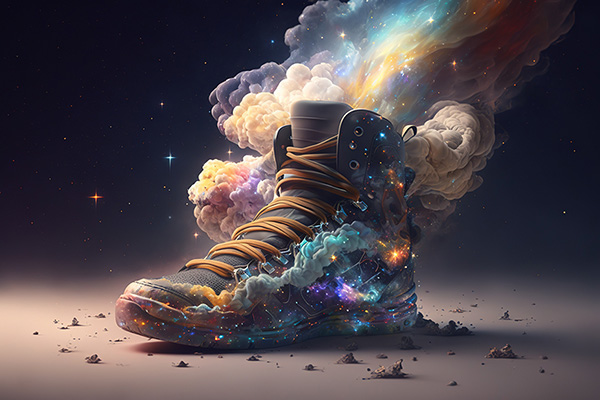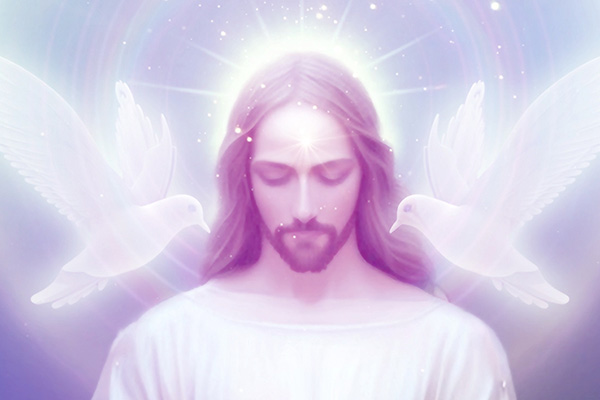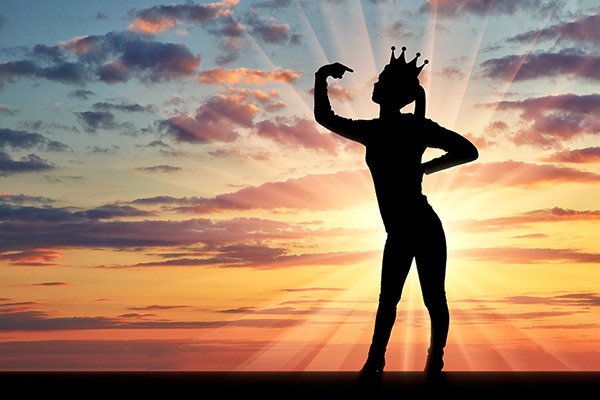self-righteousness
Walking Two Moons In Their Moccasins
 To judge, or not to judge, that is the question. Now, even the least religious of Christians will tell you that it is not a good idea to stand in judgment of others. In fact, Matthew 7:1-5 clearly states: “Do not judge, or you too will be judged. For in the same way you judge others, you will be judged, and with the measure you use, it will be measured to you.” However, there is a little-known addition to this spiritual wisdom to be found in John 7:24: ” Stop judging by mere appearances, but instead judge correctly.”
To judge, or not to judge, that is the question. Now, even the least religious of Christians will tell you that it is not a good idea to stand in judgment of others. In fact, Matthew 7:1-5 clearly states: “Do not judge, or you too will be judged. For in the same way you judge others, you will be judged, and with the measure you use, it will be measured to you.” However, there is a little-known addition to this spiritual wisdom to be found in John 7:24: ” Stop judging by mere appearances, but instead judge correctly.”
Wait a minute? Did Jesus not instruct us never to judge? Yes, he implored us not to judge, but he also asked us to filter our experiences through the wisdom of spirit, or the eyes of divine love, before making any judgment. Indeed, some sound judgment is necessary in life. If we never judge anything at all, we may potentially become doormats to others. That’s certainly not what any wise spiritual teacher would recommend. But we need to be sensible, humble and kind in the process. We must ask for divine wisdom and guidance when considering what we say to others, as well as ourselves.
Judgment is related to karma and the ‘golden rule,’ in that we receive back what we dish out. This is not good if we hold onto our rigidity, unable to see others’ points of view. But if we open our minds and see it from another’s point of view, then we will more fairly and compassionately balance our judgments. We must remember the Native American wisdom, “Don’t judge a man until you have walked two moons in his moccasins.”
What Is Christ Consciousness?
 The mystic and clairvoyant Rudolf Steiner predicted more than a century ago that humanity is entering a time in which a new spiritual awareness or higher consciousness shall emerge. Steiner named this new awareness Christ consciousness, a transformative energy that would transcend orthodox, dogmatic religion.
The mystic and clairvoyant Rudolf Steiner predicted more than a century ago that humanity is entering a time in which a new spiritual awareness or higher consciousness shall emerge. Steiner named this new awareness Christ consciousness, a transformative energy that would transcend orthodox, dogmatic religion.
Steiner explains that Jesus was able to tap into a higher level of consciousness that comes from the realm of God, Source, Spirit, the Divine. He became “christed”to show us how to accomplish the complete activation of the spiritual seed we all have within our soul. “The rest of humanity must now, in imitation of Christ, gradually develop what was present for 33 years on the Earth in one single personality,” he writes.
Jesus understood that even just a little speck of this higher energy, no larger than a mustard seed, could transform human beings into exalted beings of a higher dimension. The essence of Christ consciousness is therefore simply this: Jesus came to teach us that the blessed pathway to our inner divinity and the glorious kingdom of higher consciousness already lay charted within the heart of each one of us. All we need to do is follow it.
The concept of higher consciousness or spiritual enlightenment is found in many world religions. Christ consciousness is also known God consciousness in Protestant Christianity; Cosmic consciousness in Hinduism; and Pure consciousness in Buddhism. Renowned psychic Edgar Cayce referred to it as “the Christ pattern”. Channeler Paul Selig describes Christ consciousness as a higher energy vibration at which one realizes that “God is the frequency of every cell in your being.”
Christ consciousness is therefore an awareness of the higher self as an expression of the Universal Consciousness. It is an elevated state of spiritual awareness that one achieves through self-realization and unity with God Source, Spirit, the Divine.
Focus On Your Own Karma
 I often get questions about karma, vengeance, and divine justice from clients when I do readings. Will the haters get what’s coming to them? Will karma finally get my cheating ex? Will my abusive employer get his comeuppance someday? If so, how long will it take for them to feel the hurt and pain they inflicted on me?
I often get questions about karma, vengeance, and divine justice from clients when I do readings. Will the haters get what’s coming to them? Will karma finally get my cheating ex? Will my abusive employer get his comeuppance someday? If so, how long will it take for them to feel the hurt and pain they inflicted on me?
When someone calls me hoping to hear that the other person will get their ‘karma,’ it usually relates to a recent incident and they feel like the rug has been pulled from under them – especially when the attack or betrayal was seemingly unfounded. They usually hope for immediate, soul-crushing retribution!
In my own life, I have not experienced such ‘instant karma.’ In fact, true karmic debt is a very slow turning wheel. Expecting immediate payback is a lost cause and a foolish pursuit. Revenge is sweet, they say, but the spiritual truth is that seeking venegeance will only add to your own karmic debt. If someone has hurt or wronged us, the pain will ease over time. Time heals all wounds, even if the scars remain.
The only meaningful ‘payback’ I have ever experienced in my own life, was the times when I received apologies from loved ones on the other side in mediumship readings. Those messages all came from the souls of family members who have completed their life review after their transition. Once we cross over into the spirit realm, we always get new clarity and an expanded understanding of our actions, or lack thereof, and how it has caused harm to others. For some souls this process takes much longer than for others.
This happened to me on several occasions over the years, with various mediums relaying spirit messages of remorse, apologies, and loved ones asking for my forgiveness. In every instance the ‘perpetrator’ had no idea of the impact they had had on me while they were in this life. Some of them also explained that their hurtful actions were due to a learned dysfunctional behaviors and trauma from their own life experiences, especially from childhood.
The Truth About Ego And Spirit
 Having a strong ego may be just as important as having a strong spirit. However, it can become a problem when we are confused or conflicted between the two, and do not realize that one is tied to the other.
Having a strong ego may be just as important as having a strong spirit. However, it can become a problem when we are confused or conflicted between the two, and do not realize that one is tied to the other.
Ego is all about our sense of self. It is about our self-worth, self-belief and how we feel we compare to others. Having a healthy sense of self-esteem is vital for our happiness and well-being.
For example, if someone chooses to stay in a toxic relationship due to their low self or sense of self is essential for our mental and emotional well-being. We must not confuse having a healthy ego with an over-inflated one.
People who have healthy egos do not think in terms of bold versus meek, or overbearing versus subdued. It is not about dominance or submission for them. They only view themselves as being worthy and competent, and strive to improve their life and become the best possible version of themselves. Self-love is not self-righteousness. People with a strong ego can confidently navigate whatever life throws their way without losing their sense of self.
However, those with an over-inflated, toxic ego tend to be arrogant, self-important and more concerned with how others are doing instead of their own achievements. They tend to believe they are so much more worthy and successful than everyone else, and constantly judge others for their mistakes and failures. Big egos are not very ‘healthy’ at all!
Also, when we strive for bigger or better things for ourselves, it is not only a case of satisfying our ego. Spirit operates with a similar agenda. Our soul or spirit is in fact strongly connected to our sense of self. This is why we traditionally say someone is in ‘low spirits,’ meaning they are feeling sad or depressed. But when someone is in ‘good spirits,’ they may have had happy news or some good fortune.
Being Your Strongest, Most Authentic Self
 Many people tend to think that being vulnerable and open is a bad thing, because it makes them vulnerable to getting hurt in life and especially in relationships.
Many people tend to think that being vulnerable and open is a bad thing, because it makes them vulnerable to getting hurt in life and especially in relationships.
When someone disappoints or hurts us, whether deliberately or inadvertently, it is usually because they have deep wounds of their own that stems from their past, especially for their childhood. These unresolved traumas are often dormant and unconscious.
One might feel this is still no excuse to treat others poorly, or that they should know better. However, because these people typically have not done much inner work or self-healing to really know how to be in loving, happy, and functional relationships. I’m not condoning their bad behavior, but if they actually do not know any better, then how can one expect it from them?
I find people who are stuck in such patterns of hurting others are usually very much defensive and in denial. If you gently suggest what you may need from them, or bring up an aspect that the two of you could work on together to improve the relationship, they tend to instantly throw what you say back in your face and make it all about you. Suddenly, all of it is your fault.
This defensive behavior is a clear signal that this person has a lot of hurt, and is either fearful or unable to work through it. Therefore, if you bring up something that triggers their pain, they immediately see it as a threat. They feel attacked, or that they are being made a scapegoat.

